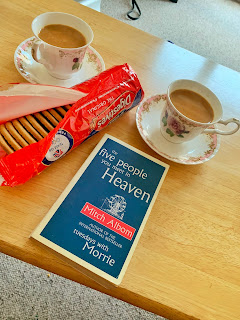The subtle art of not
giving a fuck, A counterintuitive approach to living a good life, by Mark
Manson
The book attracts readers by it's title ofcourse. At first I
thought it would be a funny story with some self help lessons. But turns out to
be a serious approach.
It seems Mark is trying to dig deep into everything and find
an optimal balance which doesn't really work and requires continuous reframing
and improvising.
It's better to see the big picture than to zoom in and
struggle to reach to the edges. Many concepts put very well into the book
but are essentially incomplete.
There is this urge to criticize his work in the beginning
but as you go on reading you find some serious shit hitting you hard on face.
Things you feel and experience in your day to day life but
never really paid attention on their patterns are the things Mark highlights in
the book. Few of them are Feedback loop from hell, Values-metric-measuring
units, Fault/ Responsibility fallacy, Failure/Success paradox, Do Something
Principle and few others.
Chapter 1 is all about accepting yourself and being
comfortable with being different
Chapter 2 says you are alive here to solve problems.
Choosing your problems or pain and solving them is called Happiness and not the
result you get after solving.
Chapter 4 gives you values to measure and metric to compare
your success rate and overall life. It defines good and bad values.
Chapter 5 is the major content of this book. It talks about
Choice you are making every single moment either consciously or unconsciously.
And Mark specifies The Choices in 4 major aspects- Fault and responsibility,
Responding to tragedy, Genetics and hand we're dealt and Victim-hood.
Mark explains how you alone are responsible for every
situation you face in above circumstances and reasons you should shift your
thought process.
Chapter 6 says you're wrong about everything and asks you to
question your beliefs every now and then because ofcourse belief system makes
sense only if it keeps evolving. Referring to Parkinson's Law and Murphy's Law,
Mark is trying to give readers a brand new Manson's Law which doesn't make a
sense.
Because he says you avoid things which threatens your
identity whereas fact is you can never define your identity unless you are an
enlightened being. May be he is talking about the artificial identity that you
create around yourself to look presentable (or to hide your shit)
Mark warns you not to believe every cooked up story your
mind is trying to tell you and asks you to find clarity in confusion by not
being certain about anything. Which I liked because if you are certain and know
things before hand what's the point living... makes sense right!
Chapter 7 and 8 gives you some motivation and helps overcome
failures and pain, giving and receiving a "NO", freedom which binds
you and binding which liberates you, rejection handling, rebuilding trust,
freedom from commitment and so on.
In Chapter 9 Mark wants you not to avoid and to acknowledge
Death because it's the only certain thing we know about our life that, we all
one day Die.
He briefs on his friend's death and how he transformed
himself.
But again it's incomplete and shallow.
No, you can not put death into words especially in some
vague 25 pages , not untill you have died once!
Yes it's an amazing book for beginners of self help readers,
young adults, emotionally frustrated beings! but I personally don't completely
agree with some interpretation of concepts.
So we are at the end of my review, I would like to give it
a 4/5 for concepts and his experiences & efforts combined.







